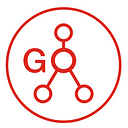The GO platform is built by the IFRC, for our membership to prepare for, respond to and learn from emergencies. The 190 member National Societies of the IFRC contain multitudes, cover almost every country and territory on the planet, and are rooted in local communities and diverse national contexts. Building an online platform that meets everyone’s different needs is impossible. But we can aim to please most of the people, most of the time.
This blog describes how we have taken the time over the past few months to listen to and ask our users what they want and need from GO; the process of reflection with different layers of the network; and the actions we will take to meet their expectations. But, if you want to get to straight to the report, please find here below:
Background
GO is built to meet our user’s workflows, needs and stories. By continually engaging with our users to ask them to describe their work and their preferred way of interacting with GO, we build features which aim to either streamline into existing working practices, or transform these to make them more efficient or evidence-based.
Every two years, we run a holistic study to reflect on the user experience across the platform. The GO Study 2022 focussed work in the past two years on developing National Society pages and dedicated functionality, expanding the regular use of GO during operations, and surfacing reliable and trusted data for the network.
We have gone even further in the GO Study 2024, using a variety of methods to gather feedback, and reflecting on these with different stakeholders, with different perspectives. We tested some challenging hypotheses, intending to get a clearer picture to make the insights more practically useful.
Listen
We used a survey and targeted in-depth interviews with a deliberately diverse range of users (based on their frequency of use and actions on the platform) to get different perspectives. We heard from nearly 300 different users, from a variety of roles and from a good geographic spread, covering every continent.
We wanted to take this opportunity to thank everyone who gave generously their time. If you missed the opportunity but would like to give us feedback, please get in touch at im@ifrc.org.
We gathered a lot of insights, ranging from the very specific to general observations. Some of the key issues we encountered are the following:
- There is low awareness of GO in the National Societies, but when people found out about it, they could see how valuable it could be for their colleagues
- GO is seen as a tool predominantly for the Secretariat, despite the majority of data coming from the National Societies
- There is confusion between the role of GO to surface data from other systems, and the data from the platform itself
These are all hard problems to solve, but we know we need to tackle them so engaged key stakeholders to come up with ideas and approaches.
Reflect
The strategic direction of the GO platform is advised by two groups, one comprised of Directors in the IFRC Secretariat, and one open group of critical friends from the IFRC membership. After presenting a summary of these results to attendees at the Q3 2024 quarterly briefing, we organised sessions to take on board their feedback.
The IFRC Secretariat GO Advisory Group is made up of Directors from National Society Development Services, Disasters, Climate and Crises, Digital Transformation, Logistics and Supply Chain, Health and Care and the Strategic Planning departments. The quarterly meetings enable co-ownership across the organisation. One relevant decision taken was to refocus on data governance, ensuring that there is greater clarity on who ultimately takes responsibility for the data GO is displaying.
The Membership Advisory Group is less formal, and provides a great sounding board and means to gather many different points of view. We used an online whiteboard to take the conversation towards actions we could take together to address the issues identified.
Act
We have a number of short term and longer-term actions arising from the study. First, we have a list of ‘quick wins’ which aim to ease access and use of the platform, many of which based on issues observed during interviews. We have also ticketed a number of backlog items which will
Looking longer term, we aim to:
- Build awareness of GO through dedicated communications, developing training materials and pointing users to areas of the platform with which they may be less familiar
- Provide more ownership of GO to National Society users, by easing their editing access, clarifying and empowering focal point roles and by creating an organisational view of GO users for them to have an overview of interactions
- Improve data clarity through better referencing and linking to sources, as well as by continuing to improve the documentation on the GO wiki
2025 promises to be a pivotal year for the use of GO. Thanks to support from USAID, 25 National Societies will be selected to receive support for them to strengthen their information management capacities. We expect that GO will be a key accelerator for those capacity strengthening efforts, with the tools and data provided on the platform being more well used and integrated than ever before.
As part of that investment, we expect to begin customisation of the platform for specific National Society needs. The insights from the GO Study 2024 have set us on a good path to meet those needs, and reach our collective potential.
The GO Study was managed and implemented with the invaluable support of Yellow Umbrella, the user experience design agency we have worked with since the launch of the platform. YU form a key part of the fantastic GO design and development team, which, as well as IFRC and National Society staff as well as teams from Togglecorp, Data Friendly Space and Development Seed.
